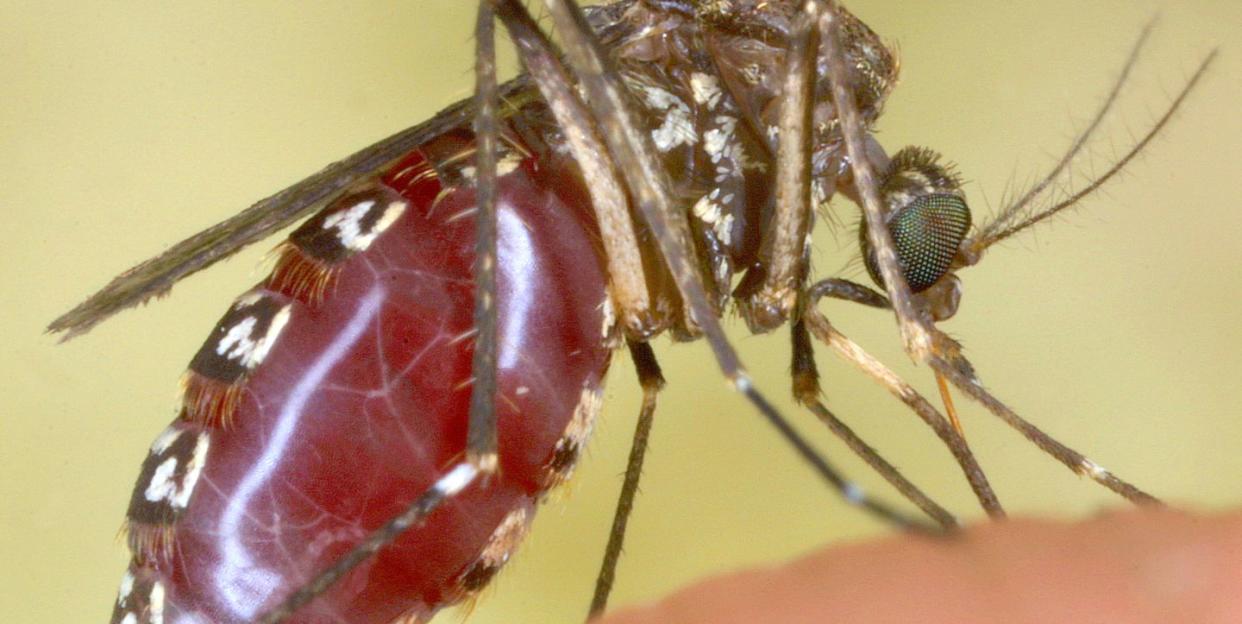Experiments Show 'Gene Drive' Technique Could Wipe Out Malaria-Carrying Mosquitoes

Within lab experiments in a technique called "gene drive," scientists in England have been able to eliminate malaria within mosquitos that were part of the test. Using gene drive, the elimination only took in between 7 to 11 generations.
The scientists studied a mosquito known as Anopheles gambiae, or An. gambiae. A nasty insect that prefers to feed on humans, An. gambiae are among the most effective spreaders of malaria known to humanity. They mainly live in sub-Saharan Africa, which counts for around 80 percent of the modern world's cases of malaria according to the World Health Organization.
An. gambiae has a gene known as "doublesex," which determines the male or female sex of the mosquito. Using gene drive, scientists at Imperial College London were able to selectively target a region of the "doublesex" gene that holds sway over female development. Males with the modified gene showed no changes, with the same results going for females with only one copy of the altered gene. However, when female mosquitos got two copies of the alternated gene, changes were definitely noticeable.
These females did not bite nor did they lay eggs. With the gene modification being passed down 100 percent of the time, the population began to collapse. After 8 generations, no females were being born at all. Unlike other attempts at gene manipulation, there was no evolutionary resistance from the mosquitos as they passed from one generation to the next. No functional mutation of the doublesex gene developed to save the mosquitos from their plight.
“This breakthrough shows that gene drive can work, providing hope in the fight against a disease that has plagued mankind for centuries," says Professor Andrea Crisanti of he Department of Life Sciences at Imperial. "There is still more work to be done, both in terms of testing the technology in larger lab-based studies and working with affected countries to assess the feasibility of such an intervention.
“It will still be at least 5-10 years before we consider testing any mosquitoes with gene drive in the wild, but now we have some encouraging proof that we’re on the right path. Gene drive solutions have the potential one day to expedite malaria eradication by overcoming the barriers of logistics in resource-poor countries.”
Mosquitos are among humanity's most troublesome pests. Last year after Hurricane Harvey, they flooded Houston. Talk of gene editing mosquitos has happened for several years now, going back to at least 2015.
While some are reluctant to use gene editing because it's akin to playing God, few would miss the path of devastation and sickness that mosquitos have caused over the years. In 2016, there around 216 million cases of malaria worldwide with around 445,000 deaths, mostly children under the age of 5.
"2016 marked the first time in over two decades that malaria cases did not fall year-on-year despite huge efforts and resources," Professor Crisanti says, "suggesting we need more tools in the fight.” New genes might be just the weapon.
Source: Imperial
('You Might Also Like',)

